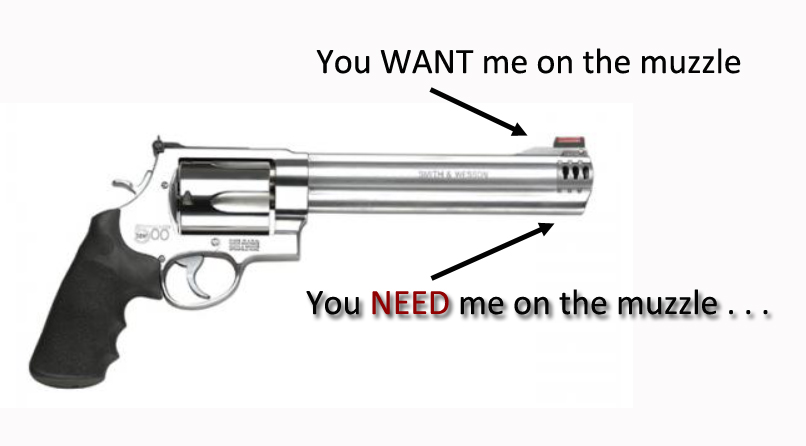I just thought about this topic as I was posting on another thread regarding 10mm, 45 Super and 460 Rowland.
My starting assumption is that handguns are primarily self defense tools, and they can also be hunting and recreational/sporting implements.
Comps on firearms exist to tame the recoil of powerful rounds, but the cost is a considerable increase in muzzle blast/concussion.
Of course, hearing protection exists to dampen and protect from the damage that muzzle blast causes, but there are situations in which the donning of hearing protection might be difficult or not possible:
1) When attacked by wildlife, bears, mountain lions, or wild people
2) When hunting and taking an opportunistic shot.
Yet, these two situations are the ones in which the increased power of magnum rounds is really useful, and the handguns chambered for these are the ones that are often comped! The 460 Rowland comes to mind.
So, as its use without hearing protection makes a firearm downright injurious to a shooter's hearing...
.. are comped handguns mostly range toys or competition sporting articles?
What do you think?
My starting assumption is that handguns are primarily self defense tools, and they can also be hunting and recreational/sporting implements.
Comps on firearms exist to tame the recoil of powerful rounds, but the cost is a considerable increase in muzzle blast/concussion.
Of course, hearing protection exists to dampen and protect from the damage that muzzle blast causes, but there are situations in which the donning of hearing protection might be difficult or not possible:
1) When attacked by wildlife, bears, mountain lions, or wild people
2) When hunting and taking an opportunistic shot.
Yet, these two situations are the ones in which the increased power of magnum rounds is really useful, and the handguns chambered for these are the ones that are often comped! The 460 Rowland comes to mind.
So, as its use without hearing protection makes a firearm downright injurious to a shooter's hearing...
.. are comped handguns mostly range toys or competition sporting articles?
What do you think?
Last edited:



